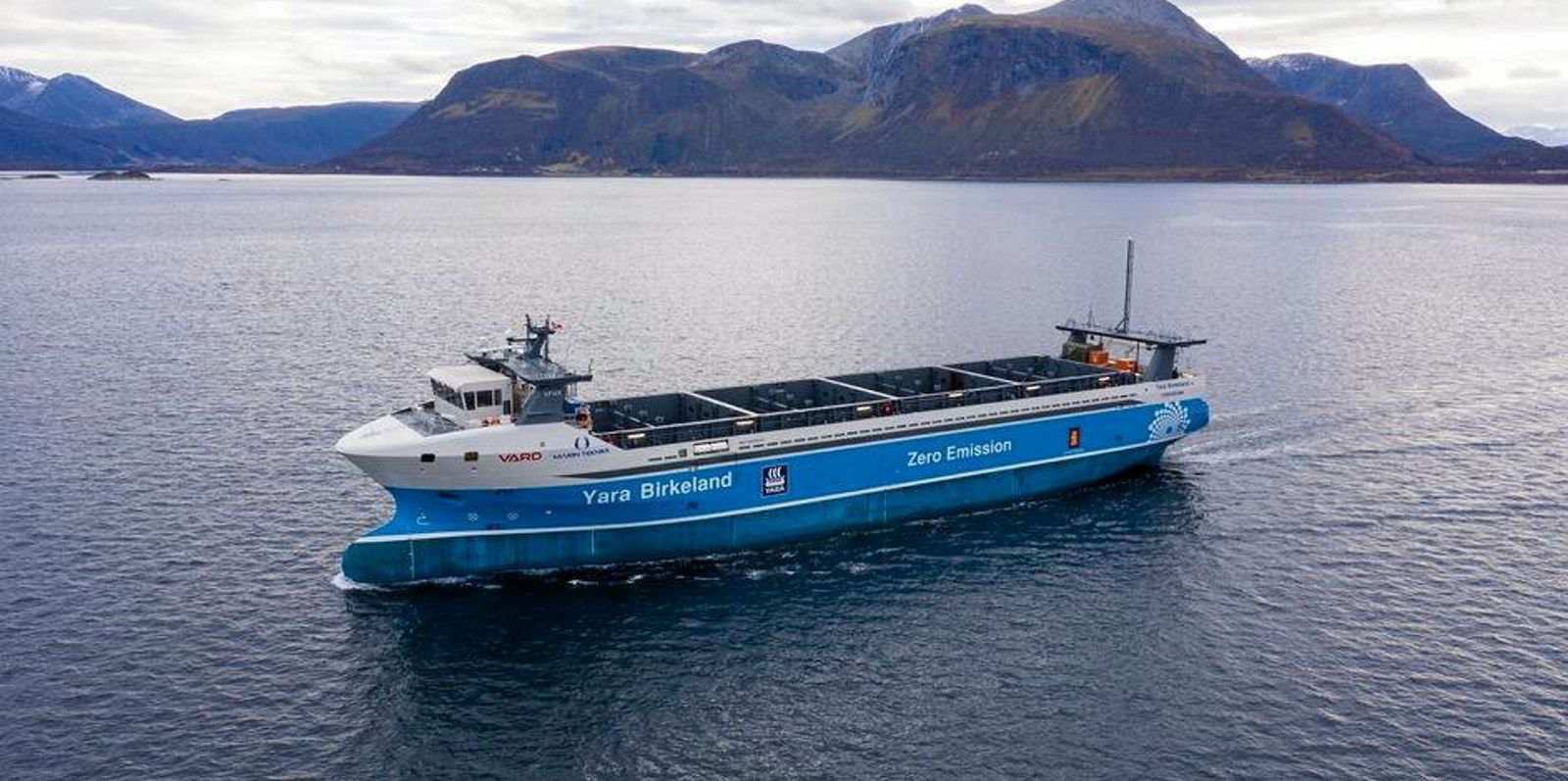The world’s first electric autonomous container ship is starting its first commercial voyage this week.
And the Norwegian coastal trip for the 120-teu, 3,200-dwt Yara Birkeland (built 2021) is the first step to making the ship completely un-crewed by 2024.
Pia Meling, vice president of sales and marketing at Wilhelmsen-backed autonomous vessel company Massterly, said there is a crew on board now, but this will gradually change.
Speaking at Nor-Shipping in Norway, she explained that the first step in its autonomy journey is to test the robotic mooring arm designed by MacGregor.
Meling said: “That should be able to replace the two people who do that job.”
After that, the chief engineer will move to shore, then the two navigators, one at a time, she added.
Massterly has been hiring in recent months, adding 12 more staff.
Eventually, all jobs will be moved onshore, Meling said.
Asked if she is still having conversations with people concerned about autonomous shipping taking away seafarers’ jobs, Meling replied: “Less now. People understand this is not taking a job, it’s creating a job.”
The staff being recruited now are seafarers and navigators, but in 20 years, Meling said the picture might be different.
“Maybe you can do more training on simulators,” she added.
Meling also explained some new additions had been waiting two years for jobs to come up at Massterly.
She explained there is a strong attraction to working onshore and being able to return to families at the end of the day.
And the executive said the work is going to be more interesting.
“They can switch between different types of vessels,” Meling added.
The Yara Birkeland is owned by ammonia producer and LPG carrier owner Yara International.
The ship will cut 1,000 tonnes of CO2 and replace 40,000 trips by diesel-powered trucks each year through battery power.
But legislation is running behind the development of these kind of vessels.
Henrik Tunfors, chair of one of the International Maritime Organisation’s maritime autonomous surface ships (MASS) working groups, said there is a road map towards a 2025 completion date for mandatory regulations.
He said, however: “That date has a lot of moving parts to it, a lot of experts and committees have a lot of work to do.”
Tunfors also said there is the possibility of non-mandatory guidelines for MASS in the meantime.
Follow all of TradeWinds coverage from Nor-Shipping here.
(Copyright)



